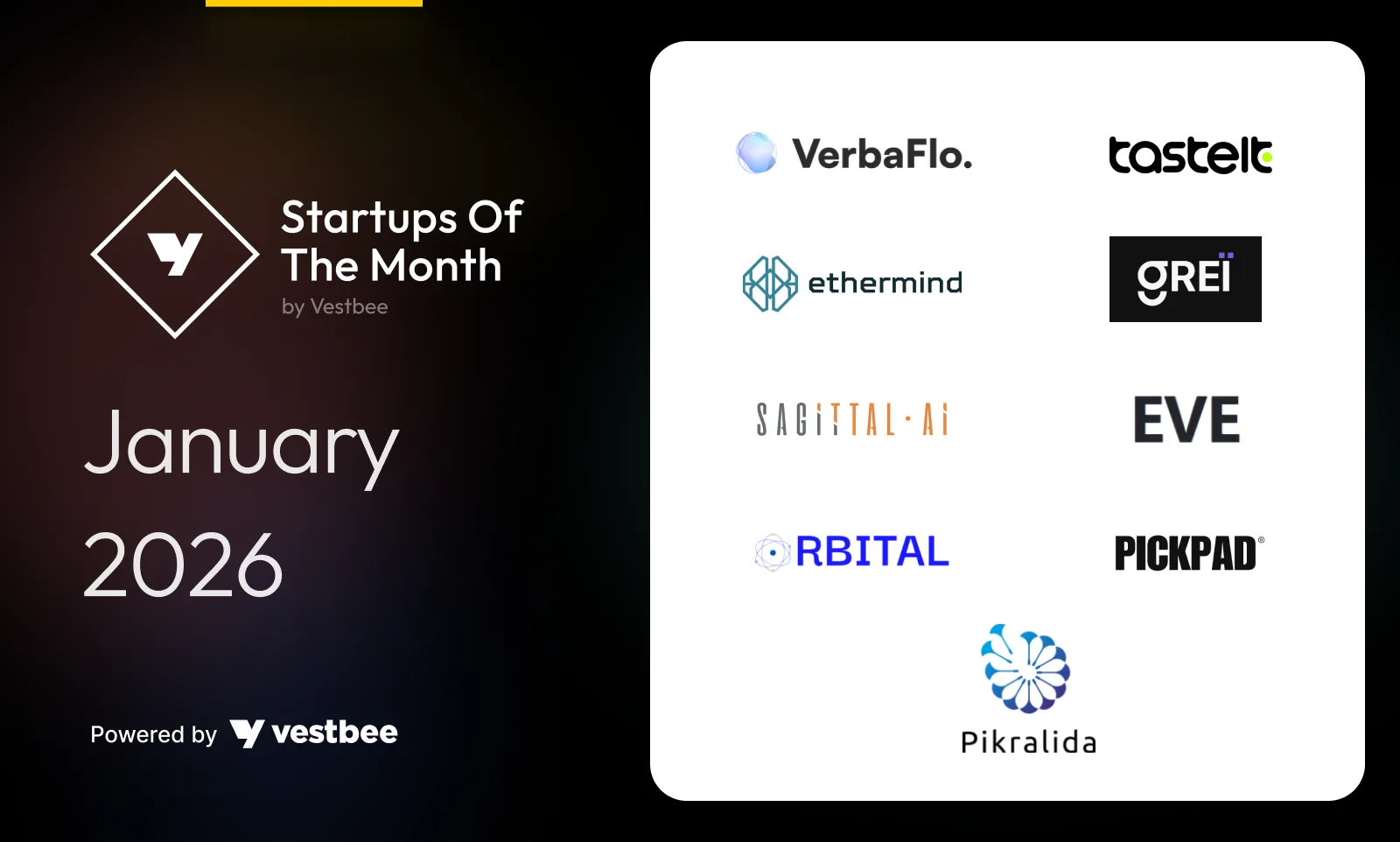BrightCap Ventures is a Sofia-based early-stage VC investing in technology companies from CEE with markets across Europe, the UK, and the US. It is sector agnostic with a focus on the future of work, digital health, and fintech.
BrightCap I (€25 million, 2018) is fully invested in 22 companies (with 4 US exits, most recently to IBM). BrightCap II (€60 million, 2024) backed 5 companies last year. The team has diverse experience in engineering, sales, operations, investments, M&A, and leadership across the EU and the US, and helps founders in all stages of their journey.
Fund strategy overview
Geography: CEE, EU, UK, US (diaspora)
Preferred industries: future of work, healthtech, fintech
Investment ticket: €500k-€1.5M initial ticket|
Company stage: pre-seed, seed, Series A
Product type: software
Product stage: MVP, production (depending on stage of investment)
Revenues: €0-2M
Q&A with Elina Halatcheva, Managing Partner at BrightCap Ventures
What are the 5 main things you look for in a startup?
- Team. We look for founders that have both the technical background and the strategic, business thinking (typically, it’s 2+ people with complementary skills). We also pay close attention to their moral compass, trustworthiness, and intellectual humility
- Product. We don’t invest in products with low/no defensibility in their technology, business model, or stickiness
- Market. Rather than focus on the size per se, we analyze the competitive landscape and potential product differentiation (you can still win a big share in a relatively small market, if you have a unique UVP)
- Traction. We want to see some traction to prove that the market is ready. If the start-up is in its early days, we validate its UVP through our network of industry experts
- Investors. We choose investors who think like us. We have all been founders ourselves and want to play on the same team
What disqualifies a startup as your potential investment target?
- Founders who cannot clearly articulate what problem they are solving,
- low/no defensibility of product,
- a congested market without a clear differentiation.
What, in your opinion, differentiates the best founders from the rest?
An essential quality for a successful founder is the ability to both zoom in and zoom out. Zoom in and dig deep to understand the market, the competition, the customers, your team dynamics, etc.. But then, zoom out to see the big picture and be able to position yourself better, adapt, and make changes.
What startups should take into account before making a deal with a VC fund?
Founders should focus on a). alignment and b). the experience/network of their investors. If the founder is looking for an advisor and a sounding board, but the investor is only interested in metrics and numbers, there’s no alignment. An experienced investor can help founders strategize, think through problems, and avoid mistakes. Their network of contacts can also open many doors (with respect to new employees, customers, investors, exit opportunities, etc.).
What is your approach to startup valuation and preferred share in the company?
For earlier-stage companies, we prefer to invest through a convertible (with a cap and/or discount), which allows for some flexibility. We are careful not to participate in rounds with inflated valuations or too much (>20%) dilution for the founders. Our target ownership is between 10% and 15%.
How do you support your portfolio companies?
We are actively (proactively and reactively) engaged with each of our companies. We take advantage of our team’s diverse skill sets and networks to collectively contribute to the success of our portfolio. We help with product validation, talent recruitment, strategizing, fund-raising, exit negotiations, and, of course, emotional support and team dynamics.
What are the best-performing companies in your portfolio?
Weith Fund I had two instruments: one for pre-seed investments (accelerator stage) and another for seed/Series A investments. Many of our pre-seed companies (about half of our portfolio) are yet to capitalize on their growth potential, while a few of our well-performing seed/Series A companies have already exited. Our largest (un-exited) investment through the seed/Series A instrument is LucidLink, a data storage and collaboration tool, servicing big brands like Adobe, Spotify, A&E Networks, major Hollywood studios, broadcasters, and consumer companies. We have backed them 4 times, attesting to their achievements over the years.
What are your notable lessons learned from investments that didn’t work out as expected?
- Timing is crucial. You can have the best product/tech, but if the market is not ready, you will find it difficult to sell
- Alignment of investors is a must. If investors (esp. board members) are not aligned in their approach to the founders and vision for the company, they can create havoc
- Founders are typically good at zooming in but not so much at zooming out. Often, founders get bogged down in details and miss great opportunities and imminent challenges if they don’t take the bird’s-eye view
What are the hottest markets you currently look at as VC, and where do you see the biggest hype?
We don’t follow trends or fads. We try to uncover innovative solutions addressing unsolved problems in any area or market. Having said that, we see a lot of action in automating and streamlining workflow processes (aka future of work); accelerating the adoption of digital healthcare for early detection, improved diagnostics, and personalized treatments; and modernizing the financial industry, all with the help of AI.
In your view, what are the key trends that will shape the European VC scene coming years?
In light of recent geopolitical events, I believe Europe is finally waking up to its many dependencies and making big leaps to recover its autonomy. Tons of public and private funding are being allocated for AI development and deployment. Defence is also becoming a trending topic; we already see an increasing number of dual-use technologies.






